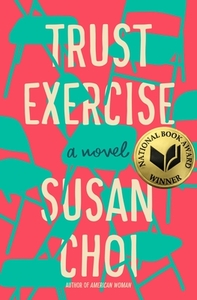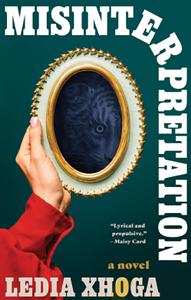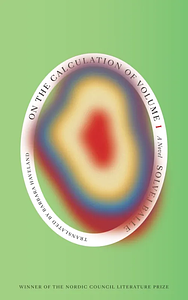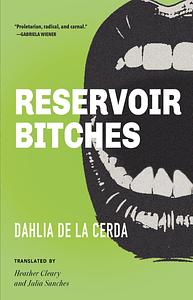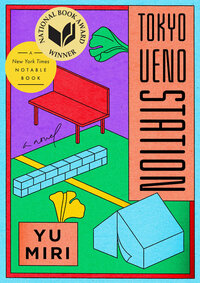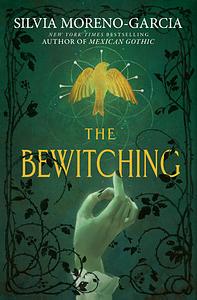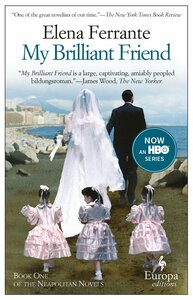Take a photo of a barcode or cover
davidaguilarrodriguez's Reviews (181)
medium-paced
Plot or Character Driven:
Character
Strong character development:
No
Loveable characters:
No
Diverse cast of characters:
No
Flaws of characters a main focus:
Yes
Don’t read this book. It’s a real slog, making obvious points in the most painfully boring ways.
Regarding the issues women face, many other books can give you great takes with actual stories.
Regarding metafiction and destabilized narrative voice, you get infinitely more in a 4 page Borges story than here.
The first 150 pages are just an utterly atrocious D+ formless piece of shit novel within a gimmicky novel.
God this book sucks.
Regarding the issues women face, many other books can give you great takes with actual stories.
Regarding metafiction and destabilized narrative voice, you get infinitely more in a 4 page Borges story than here.
The first 150 pages are just an utterly atrocious D+ formless piece of shit novel within a gimmicky novel.
God this book sucks.
Plot or Character Driven:
Character
Strong character development:
Complicated
Loveable characters:
No
Diverse cast of characters:
Yes
Flaws of characters a main focus:
Yes
reflective
slow-paced
Plot or Character Driven:
Character
Strong character development:
No
Loveable characters:
No
Diverse cast of characters:
No
Flaws of characters a main focus:
No
Read for Women in Translation Month, August 2025
The fact that this is getting so much acclaim reveals how people have really lost the ability to tell what's good anymore.
This was a slog. A promising premise — a woman reliving November 18 over and over — should lend itself to profundity or emotional heft, but here it never rises above the banal. Instead of insight, we get endless repetition without purpose, like a Groundhog Day stripped of humor, philosophy, or character.
The fact that this is getting so much acclaim reveals how people have really lost the ability to tell what's good anymore.
This was a slog. A promising premise — a woman reliving November 18 over and over — should lend itself to profundity or emotional heft, but here it never rises above the banal. Instead of insight, we get endless repetition without purpose, like a Groundhog Day stripped of humor, philosophy, or character.
The reading experience was distancing from start to finish: slow, circular, and relentlessly dull. Balle gestures toward themes of marriage, routine, loneliness, and time itself, but without emotional engagement or narrative drive, they collapse into pseudo-philosophy. The prose, meant to be spare and searching, lands flat and self-regarding. Not offensively bad, just hollow.
The only thing I’ll carry from this book is frustration at how thoroughly it squanders its premise. Better than something like Orbital, but only barely — and only because the core idea had potential. If you want to see this concept executed at a 5-star level, skip this novel and just watch Groundhog Day.
challenging
dark
emotional
funny
sad
tense
fast-paced
Plot or Character Driven:
Character
Strong character development:
Yes
Loveable characters:
Yes
Diverse cast of characters:
Yes
Flaws of characters a main focus:
Complicated
Read for Women in Translation Month, August 2025
Fuck. I feel breathless after finishing this.
Reservoir Bitches is raw, blisteringly alive, and unlike anything I’ve read in a long time. Dahlia de la Cerda has written a collection that feels like a shot of adrenaline straight to the heart — funny, furious, and devastating in equal measure. It’s a Molotov cocktail hurled at patriarchy, femicide, and systemic violence in Mexico — but it’s also intimate, voice-driven, and so alive you finish it gasping for air.
Fuck. I feel breathless after finishing this.
Reservoir Bitches is raw, blisteringly alive, and unlike anything I’ve read in a long time. Dahlia de la Cerda has written a collection that feels like a shot of adrenaline straight to the heart — funny, furious, and devastating in equal measure. It’s a Molotov cocktail hurled at patriarchy, femicide, and systemic violence in Mexico — but it’s also intimate, voice-driven, and so alive you finish it gasping for air.
Every story here is a gut punch and a rallying cry. It’s a book about survival, sexuality, poverty, and above all, women’s rage — and somehow it’s also darkly hilarious. The characters feel real and distinct, people you could sit with for hours, even as they cut you with their truths. The prose is jagged but precise, raw but easy to read, and above all, relentlessly funny without ever losing sight of the horror at its core.
There are too many “holy shit” moments to list — every story lands one — and the collective force is what makes it unforgettable. This is a book that makes you want to fight, to scream, to keep reading just to stay in its electric charge. It’s not an easy read, but it’s essential. I’ll revisit this one for years.
dark
sad
medium-paced
Plot or Character Driven:
Character
Strong character development:
Yes
Loveable characters:
No
Diverse cast of characters:
No
Flaws of characters a main focus:
Yes
David Szalay’s Flesh is a sparse novel about sex, impulse, and the way chance encounters can quietly reroute the course of a life. It’s compelling almost despite itself — an immersive read built around a protagonist with no interiority, whose blunt, stunted voice (“Yes.” “No.” “I don’t know.”) forces the reader to do the heavy lifting.
At its core, this is a novel about inarticulate masculinity. Istvan, the main character, is memorable precisely for being so blank — his unexamined choices define him more than any conscious philosophy. His body drives the story - at least everything below the neck.
The prose is stripped to the bone, deliberately plain, and sometimes showy in its refusal of showiness. It's that Hemingway style of writing, which people seem to love despite the fact that Hemingway and Gertrude Stein just randomly decided that the only way to write a true sentence is to talk like a 3rd grader.
As you can tell, that's not my favorite style, but here it's mostly fine. The restraint works well in moments of tension — a poolside encounter with a married woman, a charged scene with a husband — where the ripple effects of seemingly small acts hit with force.
The prose is stripped to the bone, deliberately plain, and sometimes showy in its refusal of showiness. It's that Hemingway style of writing, which people seem to love despite the fact that Hemingway and Gertrude Stein just randomly decided that the only way to write a true sentence is to talk like a 3rd grader.
As you can tell, that's not my favorite style, but here it's mostly fine. The restraint works well in moments of tension — a poolside encounter with a married woman, a charged scene with a husband — where the ripple effects of seemingly small acts hit with force.
Flesh is sharp in its execution but emotionally distant, and that makes it more a book to respect than to love. I was immersed, but never deeply moved. A solid, contemporary novel — one I’m glad I read, but one I likely won’t return to.
challenging
dark
emotional
funny
reflective
sad
slow-paced
Plot or Character Driven:
Character
Strong character development:
Yes
Loveable characters:
Yes
Diverse cast of characters:
Yes
Flaws of characters a main focus:
Complicated
Read for Women in Translation Month - August, 2025
Do you ever read something and your whole body feels like it might explode, it just can't contain the emotion? This book just hits you with wave after wave of beauty and sorrow, humor and anger, love and hope and hopelessness. Beautiful work. The translator's note at the end was also so informative.
As the wonderful translator notes: "Mushtaq's entire career...can be summed up in one Kannada word - bandaya. Bandaya means dissent, rebellion, protest, resistance to authority, revolution" The stories here all touch on themes such as feminism, the role of women (not just in India or in Muslim societies, but everywhere in the world and at all times in history), also caste and economic status, seeing the world of outsiders and the castoffs. And it varies its approach: sometimes through humor, sometimes through tragedy, other times with urgent pleas.
These are stories that situate you into domestic spaces and let you experience the things women deal with as afterthoughts in a patriarchal society. Some of these stories were so overwhelming in their power and insight, sublime even. I'd point out the following as my favorite, the ones that moved me with humor, pathos, and righteous indignation:
Do you ever read something and your whole body feels like it might explode, it just can't contain the emotion? This book just hits you with wave after wave of beauty and sorrow, humor and anger, love and hope and hopelessness. Beautiful work. The translator's note at the end was also so informative.
As the wonderful translator notes: "Mushtaq's entire career...can be summed up in one Kannada word - bandaya. Bandaya means dissent, rebellion, protest, resistance to authority, revolution" The stories here all touch on themes such as feminism, the role of women (not just in India or in Muslim societies, but everywhere in the world and at all times in history), also caste and economic status, seeing the world of outsiders and the castoffs. And it varies its approach: sometimes through humor, sometimes through tragedy, other times with urgent pleas.
These are stories that situate you into domestic spaces and let you experience the things women deal with as afterthoughts in a patriarchal society. Some of these stories were so overwhelming in their power and insight, sublime even. I'd point out the following as my favorite, the ones that moved me with humor, pathos, and righteous indignation:
The first story "Stone Slabs for Shaista Mahal" got things started gently and with sardonic humor. It really set the tone in a great way, introducing some of the darker themes but in a way that balanced dark irony and tragedy.
"A Decision of the Heart" hit very close to home for me, thinking about my mother and her relationship with my brother and his wife. Incredibly insightful and wise, but also painful.
"Red Lungi" was very funny, but also speaks to inequality in a profound way.
"The Arabic Teacher and Gobi Manchuri" was fucking weird and funny in a totally different type of humor than I'm used to. Really spoke to me as a tutor to rich kids.
These were the highlights, as well as the two I'm about to mention. However, that leaves about 3 or so stories in the middle of the book that were just so-so, for various reasons. That seems to usually be the case in short story collections and is the only thing holding me back from giving this a 5 star rating.
As for the two clear standout stories that made this book so phenomenal:
"Heart Lamp" and "Be a Woman Once, Oh Lord!" hit with such ferocity, such pain, such anguish, such fury that it kind of makes sense why the translator put them as the midpoint and the final story, respectively. The other stories all contain elements of these 2 powerhouse stories, but often with a lighter touch or lower stakes or something that softens them. These two stories, on the other hand, are the ones that transform you because of how intense they are and how brave Mushtaq is to fully go there. They're human stories and political manifestos in one, but I stress that they are stories first with emotion and frailty and vulnerability and rage leading the way.
Two of the best short stories I've ever read, one of the best short story collections I've read.
As for the two clear standout stories that made this book so phenomenal:
"Heart Lamp" and "Be a Woman Once, Oh Lord!" hit with such ferocity, such pain, such anguish, such fury that it kind of makes sense why the translator put them as the midpoint and the final story, respectively. The other stories all contain elements of these 2 powerhouse stories, but often with a lighter touch or lower stakes or something that softens them. These two stories, on the other hand, are the ones that transform you because of how intense they are and how brave Mushtaq is to fully go there. They're human stories and political manifestos in one, but I stress that they are stories first with emotion and frailty and vulnerability and rage leading the way.
Two of the best short stories I've ever read, one of the best short story collections I've read.
informative
slow-paced
White Boomer literary critic gets on his knees for a series of dead white men, then has the audacity to dismiss Toni Morrison. Bloom was a hack. Even the essays on authors I like were so lame.
sad
slow-paced
Plot or Character Driven:
Character
Strong character development:
No
Loveable characters:
No
Diverse cast of characters:
Yes
Flaws of characters a main focus:
Yes
Read for Women in Translation Month - August, 2025
I respect what this book is aiming for, but it left me cold. The ghostly narration and unrelenting bleakness hammer home themes of poverty, alienation, memory, and history, but without much of a story to carry me through. Page after page insists that “life is sad” — and while true, in fiction I want characters and arcs that guide me toward revelation, not just repetition.
I respect what this book is aiming for, but it left me cold. The ghostly narration and unrelenting bleakness hammer home themes of poverty, alienation, memory, and history, but without much of a story to carry me through. Page after page insists that “life is sad” — and while true, in fiction I want characters and arcs that guide me toward revelation, not just repetition.
There are moments of striking beauty and undeniable empathy for the marginalized, but the narrative stays locked in a single gear. Even under 200 pages, it felt like a slog. A meditative lament more than a novel — valuable, but hard to love.
mysterious
tense
fast-paced
Plot or Character Driven:
A mix
Strong character development:
Yes
Loveable characters:
No
Diverse cast of characters:
Yes
Flaws of characters a main focus:
No
Gothic, spooky, but ultimately disappointing. Silvia Moreno-Garcia nails the atmosphere — eerie vibes across timelines, a steady sense of unease, and the aesthetic pleasures of witchy horror. That’s the part that carried the novel and kept me reading.
But beyond the mood, it fell flat. The story was predictable from the start, every character beat telegraphed early, and the cast itself felt thin — with even the protagonist hard to root for. The prose is serviceable, but the plot coasts on atmosphere without offering surprise, depth, or genuine tension. Memorable for its spooky mood, sure, but not one I’d recommend unless you’re really craving the vibes alone.
emotional
funny
reflective
sad
medium-paced
Plot or Character Driven:
Character
Strong character development:
Yes
Loveable characters:
Yes
Diverse cast of characters:
No
Flaws of characters a main focus:
Yes
Read for Women in Translation Month - August 2025
Brilliant!!! Brilliant brilliant brilliant! My Brilliant Friend is exactly what its title promises: brilliant.
Immersive, heartbreaking, funny, and beautiful in the way life itself is, this is everything a novel should be. Everything ART should be.
Ferrante’s slow-burn storytelling demands careful attention — every detail, every shift in a relationship, every nuance of class or gender accumulates until the final wedding sequence crashes down like a revelation. And that sequence — as impactful as the opening wedding in The Godfather and that movie's closing baptism montage combined — transforms the book from a very good one into a masterpiece.
Brilliant!!! Brilliant brilliant brilliant! My Brilliant Friend is exactly what its title promises: brilliant.
Immersive, heartbreaking, funny, and beautiful in the way life itself is, this is everything a novel should be. Everything ART should be.
Ferrante’s slow-burn storytelling demands careful attention — every detail, every shift in a relationship, every nuance of class or gender accumulates until the final wedding sequence crashes down like a revelation. And that sequence — as impactful as the opening wedding in The Godfather and that movie's closing baptism montage combined — transforms the book from a very good one into a masterpiece.
At the center is the friendship between Elena and Lila, rendered with such nuance that it feels both universal and utterly singular. Tender, toxic, competitive, inspiring — it’s all of the above, and Ferrante shows how two girls can be each other’s mirror, rival, ballast, and undoing.
Naples itself is as alive as any character: shops, schools, feuds, and families pulse with violence and longing. I felt like I was there, amid those families. I came to know those places and those people.
The prose is sharp and relentless, probing at memory, ambition, and the weight of poverty, class, and gender roles. The book’s genius is its accumulation: like Joyce’s Portrait of the Artist or Linklater’s Boyhood or Greta Gerwig's Lady Bird, its episodic coming-of-age starts small and builds toward something truly transformative.
Like all of the 3 great coming-of-age stories I just referenced, the most beautiful aspect of the book (other than everything, esp. the female friendship at the core) was the understanding of seeing your childhood for what it really is, that moment of realization that transforms your home from one of belonging to a place you need to leave behind.
Naples itself is as alive as any character: shops, schools, feuds, and families pulse with violence and longing. I felt like I was there, amid those families. I came to know those places and those people.
The prose is sharp and relentless, probing at memory, ambition, and the weight of poverty, class, and gender roles. The book’s genius is its accumulation: like Joyce’s Portrait of the Artist or Linklater’s Boyhood or Greta Gerwig's Lady Bird, its episodic coming-of-age starts small and builds toward something truly transformative.
Like all of the 3 great coming-of-age stories I just referenced, the most beautiful aspect of the book (other than everything, esp. the female friendship at the core) was the understanding of seeing your childhood for what it really is, that moment of realization that transforms your home from one of belonging to a place you need to leave behind.
What will stay with me is... literally everything. But especially that final stretch: illusions shattering, lives forever altered, freedom and escape thrust into stark relief. It’s rare for a novel to deliver so much emotional and intellectual payoff in its closing act.
Everyone should read this book, especially those drawn to coming-of-age stories, female friendship, and fiction that captures the full texture of life’s small transformations. For me, it’s one of the greatest books I've ever read — and I can’t wait to continue through the rest of the Neapolitan novels.
PS - This book features one of the greatest instances of a character dropping the title of the work as a line of dialogue. Maybe the greatest use -- when a certain character says it, it flipped the script completely on their relationship and re-wrote my understanding of these girls... It actually blew my mind when one of the characters used the phrase "my brilliant friend". But I can't tell you which one because it would be a spoiler.
Everyone should read this book, especially those drawn to coming-of-age stories, female friendship, and fiction that captures the full texture of life’s small transformations. For me, it’s one of the greatest books I've ever read — and I can’t wait to continue through the rest of the Neapolitan novels.
PS - This book features one of the greatest instances of a character dropping the title of the work as a line of dialogue. Maybe the greatest use -- when a certain character says it, it flipped the script completely on their relationship and re-wrote my understanding of these girls... It actually blew my mind when one of the characters used the phrase "my brilliant friend". But I can't tell you which one because it would be a spoiler.
